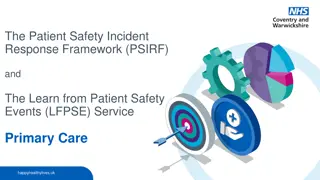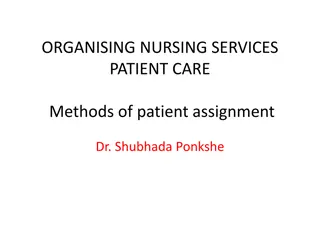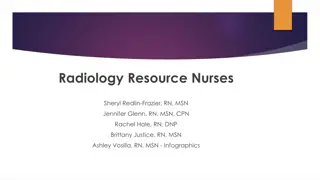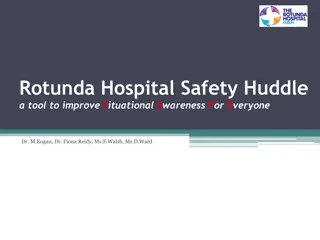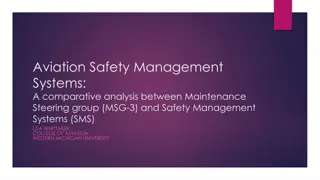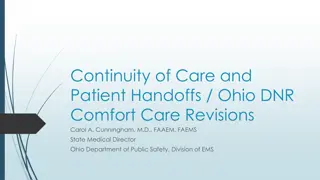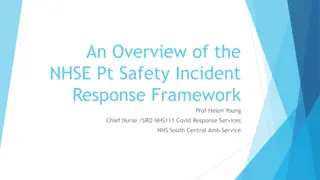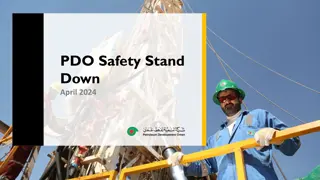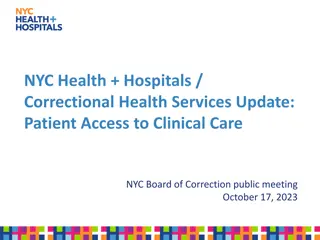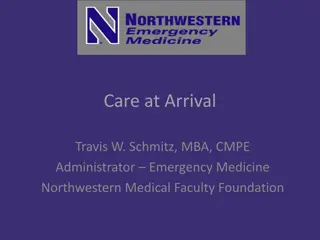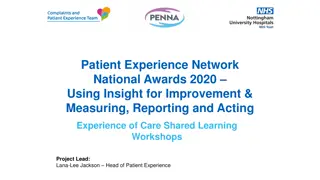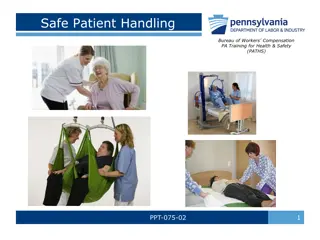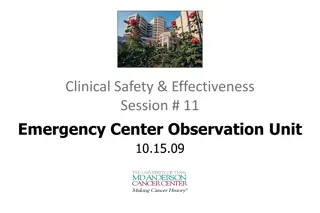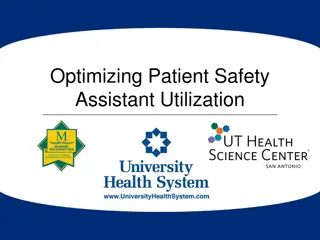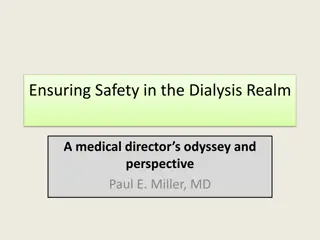Understanding and Improving Communication for Patient Safety
Chapter 3 focuses on using structured communication as a key approach to enhancing patient safety by improving communication. It discusses effective communication, tools like SBAR and CUSS, and reasons for breakdowns in communication. The chapter emphasizes improving the message and mechanisms of communication to ensure all stakeholders leave with the same understanding.
Download Presentation

Please find below an Image/Link to download the presentation.
The content on the website is provided AS IS for your information and personal use only. It may not be sold, licensed, or shared on other websites without obtaining consent from the author. Download presentation by click this link. If you encounter any issues during the download, it is possible that the publisher has removed the file from their server.
E N D
Presentation Transcript
Chapter 3 Using Structure Communication @SAFE_QI
Chapter 3: Using Structured Communication A key approach to improving patient safety is improving communication. This Chapter will focus on understanding where communication can break down and the tools that can be used to establish effective communication. @SAFE_QI
Resources Situation Background Assessment Recommendation (SBAR) Concern, Uncomfortable, unSafe, Stop (CUSS) @SAFE_QI
What is effective communication? Effective communication is an open dialogue, in which everyone leaves with a shared mental model @SAFE_QI
Is this effective communication? @SAFE_QI
Was the message structured in an easy to follow format? ? @SAFE_QI
Is this effective communication? @SAFE_QI
Understanding why breakdown in communication occurs Not including all stakeholders in the conversation Individuals are afraid of speaking up for fear of blame or having an opinion being dismissed Nurses, doctors and other clinicians have all been taught to communicate in different ways @SAFE_QI
Improving communication takes two forms Improving the message being communicated Improving the mechanisms for communicating @SAFE_QI
How do we get everyone to leave with the same message? Identify all of your stakeholders The Undertake a stakeholder analysis Role play and train Message All want to impeove @SAFE_QI
I S B A @SAFE_QI R The I-SBAR team
Key driver Communication remains the foundation of patient safety. Numerous reviews of SI indicated poor levels of communication in the handover of patient details contributed to the incident Improved communication = improved care @SAFE_QI
Aims Patients, and families are safe in the hospital Patients have timely and equitable access to services Improve the cost and efficiency of care delivery @SAFE_QI
What is I-SBAR? Communication framework- avoid failures in communication Originating from the nuclear submarine service Used extensively in medicine Safety focused Sets expectations Teamwork Acute clinical situations @SAFE_QI
I S B A R Identify yourself and the patient Situation what is the problem Background information to contextualise the problem Assessment your clinical assessment and prediction Recommendation what you think should happen @SAFE_QI
Key tasks Adapt the SBAR tool for your environment Test the tool in the ward environment @SAFE_QI
I S B A R D Identify Situation Background Assessment Recommendation Decision @SAFE_QI
Communicating with who? Nurses Doctors Admin Porter Patient Consultant @SAFE_QI
Key tasks Develop an education package to train staff in the use of I-SBAR Test the education package Implement I-SBAR for nurses and doctors @SAFE_QI
Objectives Implement I-SBAR Spread I-SBAR across the team Spread I-SBAR across the organisation Refine I-SBAR training Establish I-SBAR as the tool of communication @SAFE_QI
Process measures % of staff trained in I-SBAR % always using I-SBAR for critical communication % always including all essential elements in their report % where physician always agrees with recommendation @SAFE_QI






